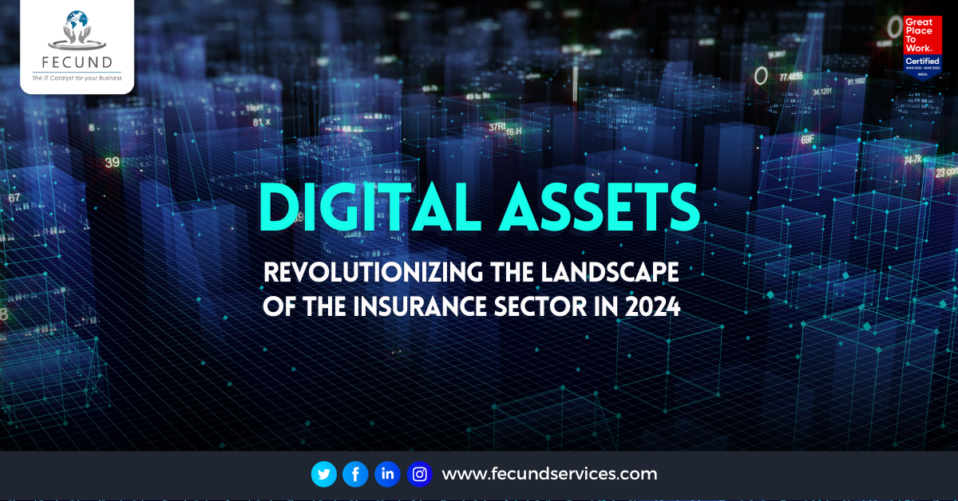
In today’s rapidly evolving landscape, the insurance industry is facing a trifecta of challenges that are reshaping its operations and strategies. The convergence of inflation, digital transformation, and climate change has led to significant shifts in how insurance companies operate, assess risk, and provide coverage. In this comprehensive article, we delve into the profound impact of these three factors on the insurance sector.
Inflation’s Ripple Effect on Insurance
The rising tide of inflation has far-reaching implications for the insurance industry. As the cost-of-living increases, so does the value of insured assets, making accurate valuation and coverage crucial. Insurers must grapple with the challenge of maintaining adequate coverage levels that align with the current value of assets. This is particularly pertinent in property insurance, where property values can escalate rapidly due to inflation.
Moreover, inflation can lead to higher claim payouts, affecting an insurer’s bottom line. To counteract this, insurance companies may need to adjust premium rates to account for the increased cost of claims settlement. Balancing competitive pricing with the need for sustainable profitability becomes a delicate act in the face of rising inflation.
Digital Transformation Redefining Customer Engagement
The ongoing wave of digital transformation has ushered in a new era of customer engagement for the insurance industry. Customers now demand seamless, convenient, and personalized interactions with insurers, and digital channels provide the means to meet these expectations.
Insurers are leveraging digital platforms to streamline policy purchasing, claims processing, and customer support. The shift to online self-service portals and mobile apps empowers customers to manage their policies, file claims, and access information at their fingertips. This not only enhances customer satisfaction but also reduces administrative overhead for insurers.
Furthermore, data analytics and AI-driven insights enable insurers to understand customer preferences and behaviours better, tailoring products and services to meet evolving needs. The fusion of digital tools with insurance operations has become essential for maintaining a competitive edge in an increasingly tech-savvy market.
Climate Change’s Escalating Risk Landscape
The escalating challenges posed by climate change have thrust the insurance industry into uncharted territory. The increased frequency and severity of natural disasters, such as hurricanes, wildfires, and floods, have heightened the complexity of risk assessment and underwriting.
Insurers must grapple with the evolving dynamics of climate-related risks, including changes in geographic risk patterns and the potential for catastrophic losses. The need for accurate risk modeling and predictive analytics has never been more critical. Insurance companies are investing in sophisticated technologies that can analyze historical data, assess vulnerabilities, and project future risks based on climate trends.
In response to these challenges, insurers are exploring innovative products such as parametric insurance, which pays out based on predefined triggers like wind speed or rainfall amount. This approach provides quicker and more targeted assistance to policyholders affected by climate-related events.
Embracing Change for a Resilient Future
In the face of these intersecting challenges, the insurance industry is at a crossroads that demands adaptability and innovation. Insurers must proactively adjust their business models to account for inflation’s impact on asset values. Simultaneously, they must leverage digital transformation to meet customer expectations for seamless interactions and personalized experiences.
To address the evolving risk landscape of climate change, insurance companies must collaborate with experts to refine risk assessment methodologies. This includes integrating climate data into underwriting processes and developing solutions that provide comprehensive coverage against climate-related events.
Conclusion
In conclusion, the confluence of inflation, digital transformation, and climate change has brought about transformative changes in the insurance industry. These challenges demand a holistic approach that embraces innovation, data-driven insights, and forward-thinking strategies. By navigating the complexities of inflation, leveraging digital tools, and confronting climate-related risks head-on, insurers can position themselves for a resilient and prosperous future.
 Author Bio: Abhishek Peter is an Assistant Manager – Digital Marketing at FECUND Software Services. With a Master’s degree in Marketing and various certifications in the field, he is highly skilled and passionate about solving complex problems through innovative marketing solutions. Abhishek is an avid reader and loves to explore new technologies. He shares his expertise through his blog, which provides insights into the world of marketing, technology and more. LinkedIn Profile
Author Bio: Abhishek Peter is an Assistant Manager – Digital Marketing at FECUND Software Services. With a Master’s degree in Marketing and various certifications in the field, he is highly skilled and passionate about solving complex problems through innovative marketing solutions. Abhishek is an avid reader and loves to explore new technologies. He shares his expertise through his blog, which provides insights into the world of marketing, technology and more. LinkedIn Profile




Post a comment